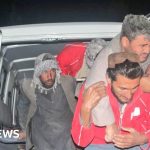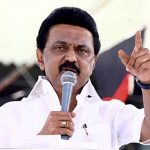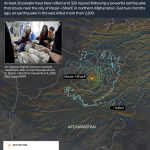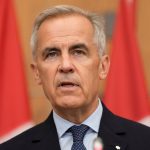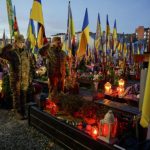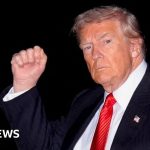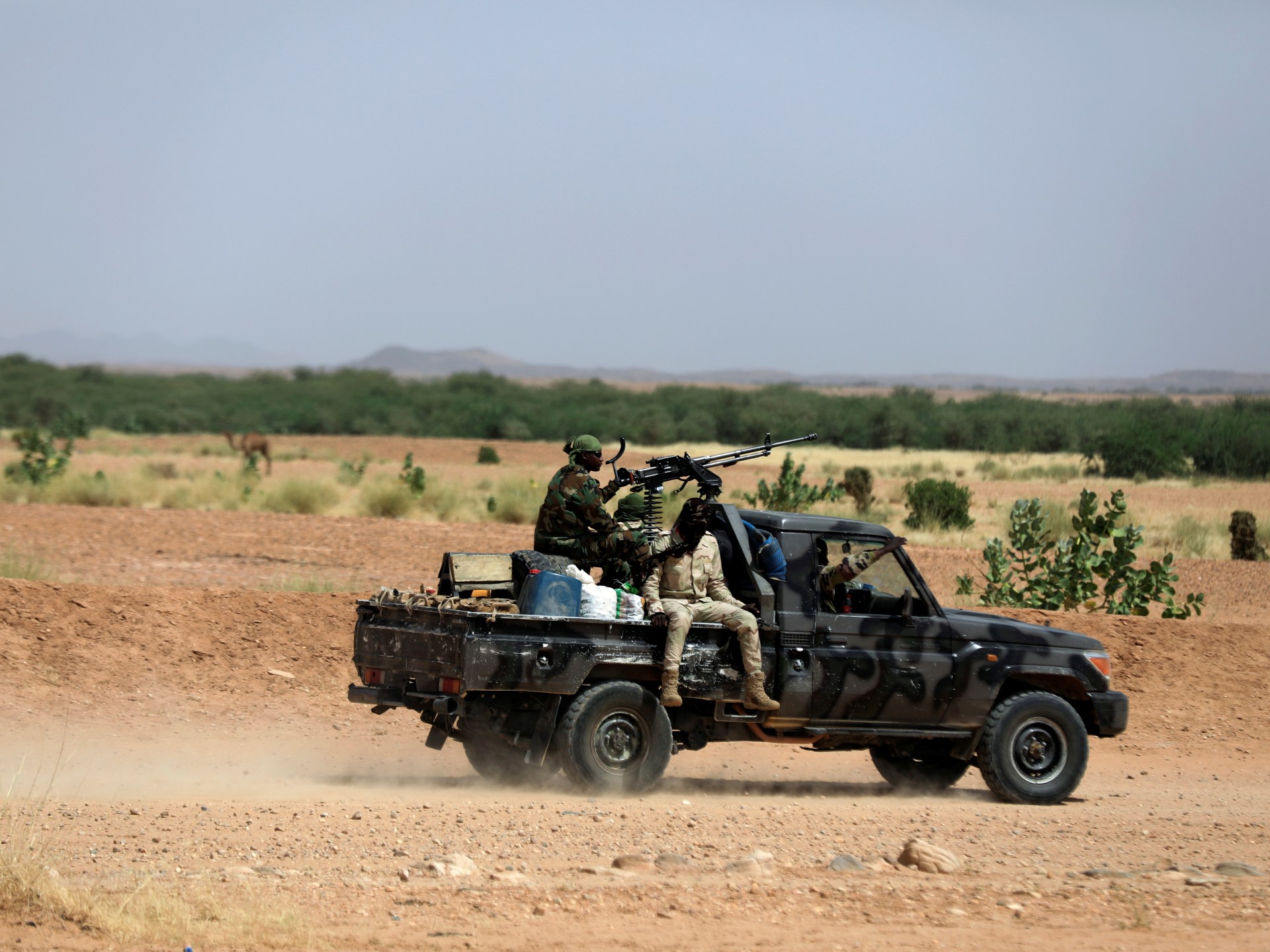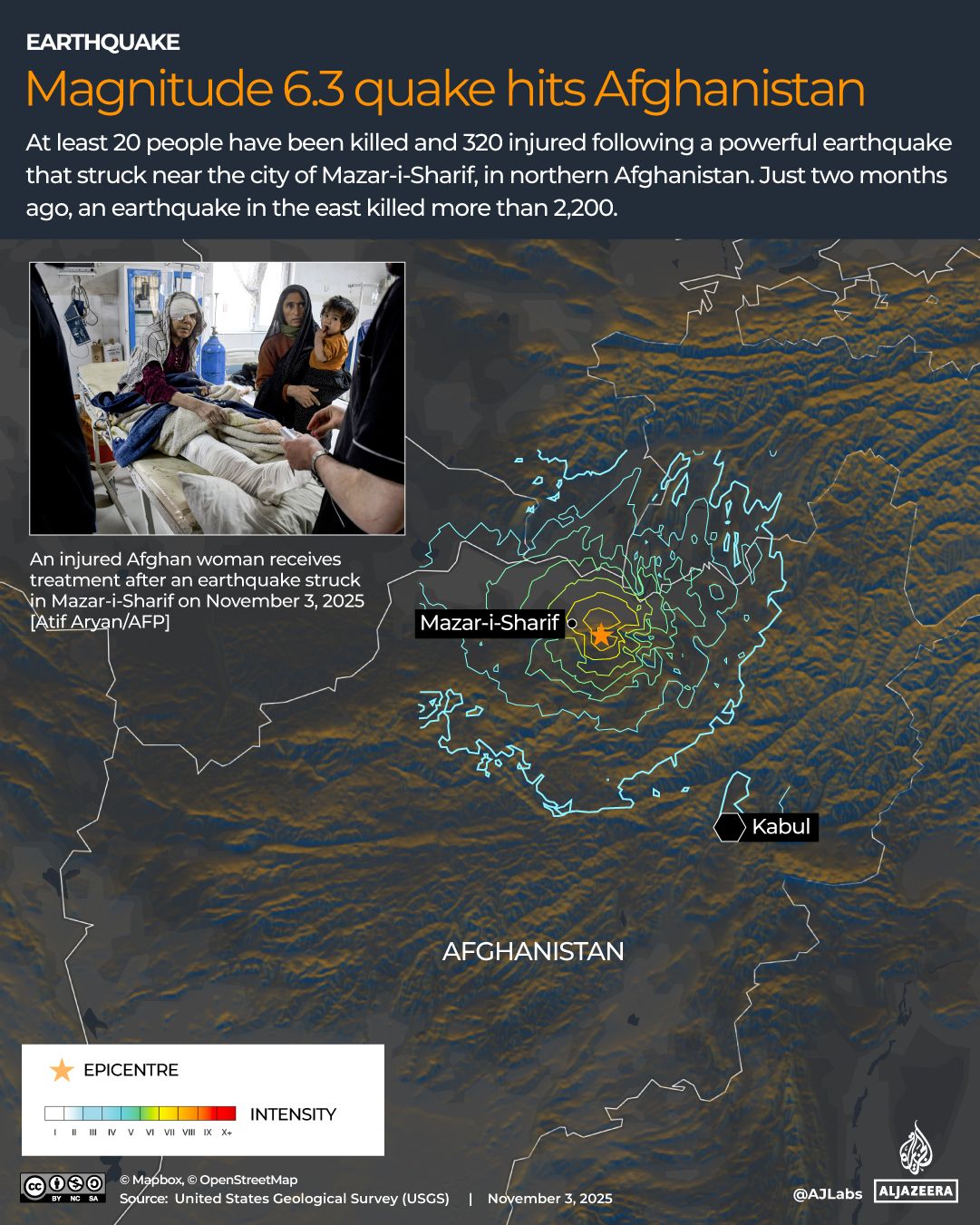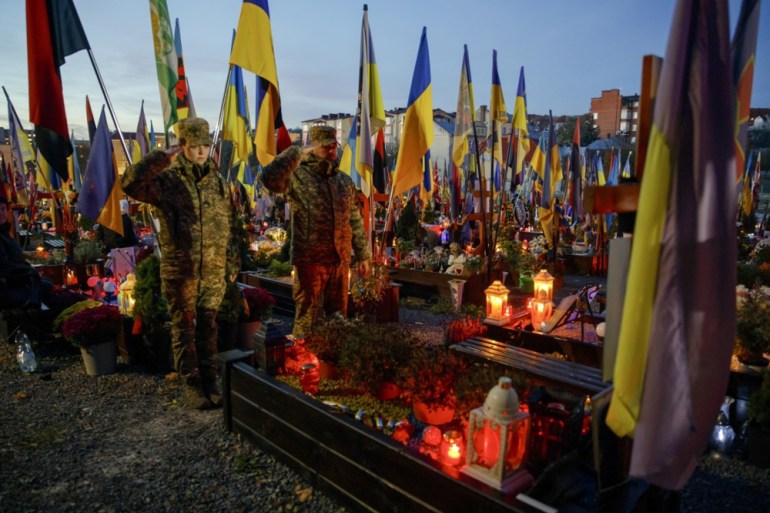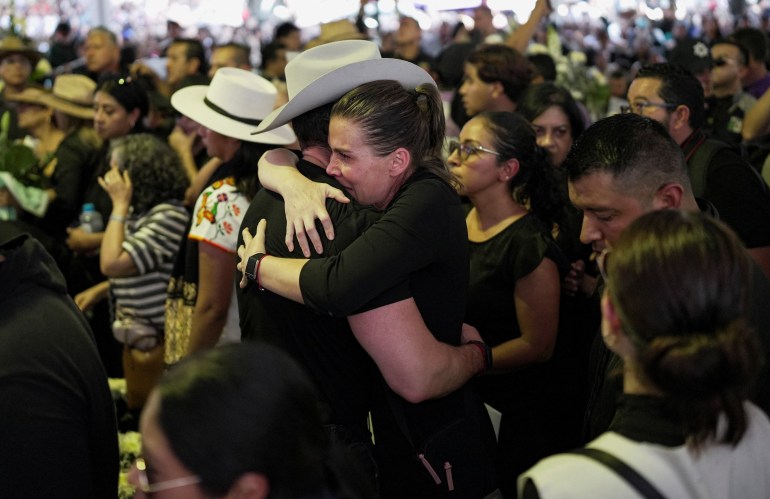Nigeria has said it would welcome assistance from the United States in fighting armed groups, as long as its territorial integrity is respected, as US President Donald Trump continued to threaten military action in the West African country over what he claimed was the persecution of Christians there.
Officials and experts in Nigeria on Sunday denied Trump’s claims of mass killings of Christians, noting that Boko Haram and al-Qaeda-linked groups target people of all faiths in Africa’s most populous country.
Recommended Stories
list of 4 itemsend of list
But Trump – who has directed his government to prepare for possible “fast” military action in Africa’s most populous country – doubled down on the threat on Sunday, saying he was he was considering a range of military options in Nigeria,
When asked by a reporterif he was considering US troops on the ground in Nigeria or air strikes, Trump replied: “Could be, I mean, a lot of things – I envisage a lot of things.”
“They’re killing the Christians and killing them in very large numbers. We’re not going to allow that to happen,” he added.
Nigeria, a country of more than 200 million people, is divided between the largely Muslim north and mostly Christian south. Armed groups have been engaged in a conflict that has been largely confined to the northeast of the country, which is majority Muslim,and has dragged on for more than 15 years.
Kimiebi Imomotimi Ebienfa, a spokesman for Nigeria’s Ministry of Foreign Affairs, in an interview with Al Jazeera on Sunday, denied Trump’s claims of mass killings of Christians.
“We are not proud of the security situation that we are passing through, but to go with the narrative” that only Christians are targeted, “no, it is not true. There is no Christian genocide in Nigeria”, he said.
“We’ve continuously made our point clear that we acknowledge the fact that there are killings that have taken place in Nigeria, but those killings were not restricted to Christians alone. Muslims are being killed. Traditional worshippers are being killed… The majority is not the Christian population.”
Imomotimi Ebienfa said Nigeria was ready to work with its partners to “fight this scourge of terrorism, but not any passive action that will undermine the sovereignty of our country”.
He also vehemently denied that the Nigerian government has allowed the killings to take place.
“The killings are not sanctioned by the Nigerian government,” he said. “The killing of any Nigerian in any part of the country is a loss to the country … The perpetrators of these killings are terrorist groups Boko Haram and other al-Qaeda and [ISIL] ISIS-affiliated groups that are perpetuating this crisis.”
An adviser to Nigerian President Bola Tinubu also echoed the sentiment.
Daniel Bwala told the Reuters news agency on Sunday that the country would “welcome US assistance as long as it recognises our territorial integrity”.
Bwala sought to play down tensions between the two states, despite Trump calling Nigeria a “disgraced country”.
“We don’t take it literally, because we know Donald Trump thinks well of Nigeria,” Bwala said.
“I am sure by the time these two leaders meet and sit, there would be better outcomes in our joint resolve to fight terrorism,” he said.
Trump’s threat of military action came a day after his administration added Nigeria back to a “Countries of Particular Concern” list of nations that Washington says have violated religious freedoms. Other nations on the list include China, Myanmar, North Korea, Russia and Pakistan.
Tinubu, a Muslim from southern Nigeria who is married to a Christian pastor, on Saturday pushed back against accusations of religious intolerance and defended his country’s efforts to protect religious freedom.
When making key government and military appointments, Tinubu, like his predecessors, has sought to strike a balance to make sure that Muslims and Christians are represented equally. Last week, Tinubu changed the country’s military leadership and appointed a Christian as the new defence chief.
“Since 2023, our administration has maintained an open and active engagement with Christian and Muslim leaders alike and continues to address security challenges which affect citizens across faiths and regions,” Tinubu said in a statement.
“The characterisation of Nigeria as religiously intolerant does not reflect our national reality, nor does it take into consideration the consistent and sincere efforts of the government to safeguard freedom of religion and beliefs for all Nigerians.”
‘No Christian genocide’
While human rights groups have urged the government to do more to address unrest in the country, which has experienced deadly attacks by Boko Haram and other armed groups, experts say claims of a “Christian genocide” are false and simplistic.
“All the data reveals is that there is no Christian genocide going on in Nigeria,” Bulama Bukarti, a Nigerian humanitarian lawyer and analyst on conflict and development, told Al Jazeera. This is “a dangerous far-right narrative that has been simmering for a long time that President Trump is amplifying today”.
“It is divisive, and it is only going to further increase instability in Nigeria,” Bukarti added, explaining that armed groups in Nigeria have been targeting both Muslims and Christians.
“They bomb markets. They bomb churches. They bomb mosques, and they attack every civilian location they find. They do not discriminate between Muslims and Christians.”
Data by ACLED, a US crisis-monitoring group, backs Bugatti’s assertion.
ACLED research shows that out of 1,923 attacks on civilians in Nigeria so far this year, the number of those targeting Christians because of their religion stood at 50.
“Insurgent groups such as Boko Haram and Islamic State West Africa often present their campaigns as anti-Christian, but in practice, their violence is indiscriminate and devastates entire communities,” said Ladd Serwat, a senior Africa analyst at ACLED.
The violence in Nigeria, he told Reuters, “is part of the complex and often overlapping conflict dynamics in the country over political power, land disputes, ethnicity, cult affiliation, and banditry”.
Serwat said the recent claims circulating among some US right-wing circles that as many as 100,000 Christians had been killed in Nigeria since 2009 are not supported by available data.
Ebenezer Obadare, a senior fellow of Africa studies at the Washington, DC-based Council on Foreign Relations, agreed and said the Trump administration should work with Nigerian authorities to address the “common enemy”.
“This is precisely the moment when Nigeria needs assistance, especially military assistance,” Obadare told Al Jazeera. “The wrong thing to do is to invade Nigeria and override the authorities or the authority of the Nigerian government. Doing that will be counterproductive.”
